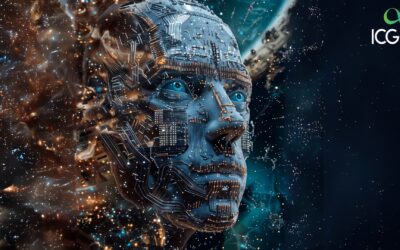Artificial intelligence (AI) is revolutionizing internal audit processes, offering a myriad of benefits to companies that embrace this technology. The integration of AI in internal audit functions brings about a transformation in efficiency, data analysis, and overall operational insights.
Enhancing Audit Efficiency
AI streamlines internal audit tasks by automating repetitive processes, allowing auditors to focus on more complex and strategic activities that demand human expertise. For example, AI-powered tools can automatically extract and analyze data from various sources, such as financial statements, transaction logs, and compliance documents, reducing the time and effort required for manual data gathering and processing. This enhanced efficiency not only accelerates audit procedures but also optimizes resource allocation within audit teams, enabling them to handle a larger volume of audits without increasing headcount.
Unlocking Advanced Data Analysis
One of the key strengths of AI lies in its ability to analyze vast amounts of data swiftly and accurately, surpassing human capabilities in data processing and pattern recognition. By leveraging AI algorithms, internal auditors can gain deeper insights from data analysis, uncovering patterns and anomalies that might go unnoticed through traditional methods. For instance, AI can analyze millions of transactions to identify potential fraud or irregularities, flagging suspicious activities for further investigation by auditors. This advanced data analysis enables auditors to uncover hidden risks and opportunities that were previously difficult to detect.
Providing Real-Time Audit Clarity
AI empowers internal auditors with real-time insights into business operations, enabling proactive responses to potential risks and issues. By continuously monitoring data streams, AI systems can alert auditors to emerging trends or anomalies, facilitating timely decision-making and risk mitigation strategies. For example, AI-powered monitoring tools can analyze real-time data from various systems, such as enterprise resource planning (ERP) software, customer relationship management (CRM) platforms, and supply chain management systems, to identify potential issues or deviations from established policies and procedures. This real-time monitoring allows auditors to address problems before they escalate, reducing the impact on the organization.

Cutting Costs with Smart AI Solutions
The adoption of AI in internal audit processes can lead to significant cost savings for companies by reducing the reliance on manual labor and streamlining audit procedures. Through automation, organizations can optimize their audit resources, allocate them more efficiently, and potentially cut down on operational expenses. Additionally, AI-powered audit tools can help identify areas where controls can be streamlined or optimized, leading to further cost savings and improved operational efficiency.
Transforming Audits into Valuable Business Assets
AI-driven data analysis techniques provide auditors with a comprehensive view of analyzed samples, enhancing the assurance provided by audit reports. By leveraging AI tools, internal auditors can extract valuable insights from data, leading to a more thorough and insightful audit process that adds substantial business value. For example, AI can help auditors identify root causes of issues, analyze the impact on the organization, and provide recommendations for improvement. These insights can help management make more informed decisions and drive strategic initiatives that align with the company’s goals and objectives.
Amplifying Audit Expertise
AI applications in internal audit enable auditors to focus on higher-value tasks, leveraging their expertise in auditing and strategic planning. By automating manual processes and documentation tasks, AI frees up auditors to concentrate on in-depth analysis, planning, and improving the quality and effectiveness of audits. For instance, AI can assist auditors in identifying high-risk areas, prioritizing audit activities, and allocating resources more effectively. This allows auditors to apply their professional judgment and expertise to areas that require human insight and decision-making, ultimately enhancing the overall quality and value of the audit process.
In conclusion, the adoption of AI in internal audit processes offers a multitude of benefits that can revolutionize the way audits are conducted within organizations. From improved efficiency and enhanced data analysis to real-time insights and cost savings, AI presents a transformative opportunity for internal audit functions to elevate their performance and deliver greater value to the business.
The ICG Approach
At ICG, we offer a customized approach that empowers your teams with the latest insights and technology expertise to navigate the demands of today’s digital age. As Saudi Arabia embarks on its digital transformation journey, ICG plays a pivotal role in shaping the Kingdom’s tech landscape by providing cutting-edge solutions, strategic consultancy, and fostering innovation. Our comprehensive guidance, from fundamental concepts to practical implementation, helps organizations mitigate risks, stay ahead of the competition, and unlock their full potential in the accelerating digital environment.
Ready to talk?
Request your free Consultation to learn more about ICG’s capabilities and enablement to embark on a transformative expedition toward the summit of success.








